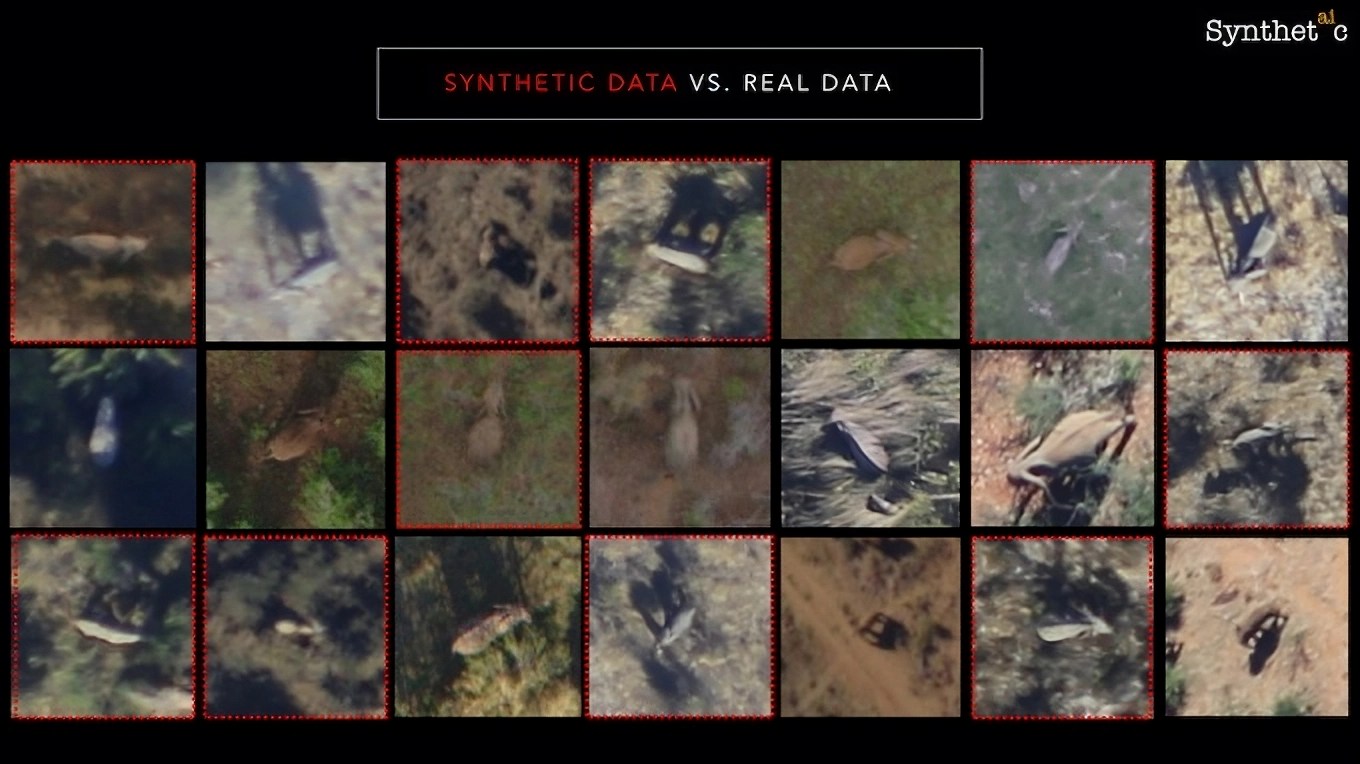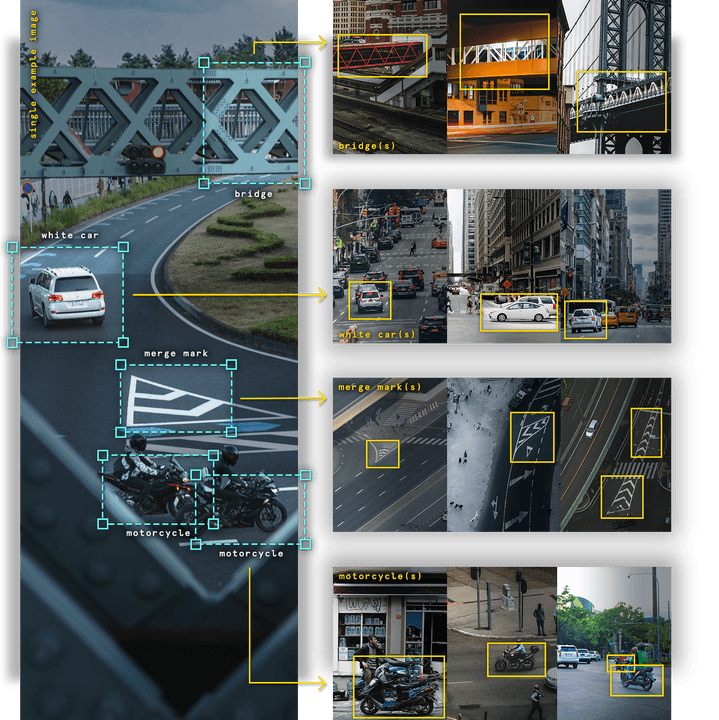
Remember the Chinese “spy” balloon from 2023? If not, here’s a refresher: About a year ago, a high-altitude balloon originating from China flew across American airspace largely undetected. Later spotted — and shot down — by the U.S. Air Force, the balloon proved difficult for curious civilian lookers-on to trace back to its origin — until AI firms like Synthetaic showed it could be done with satellite imagery.
The balloon saga turned out to be a strong product demo opportunity for Synthetaic, as luck would have it — catching the attention of investors including defense contractor Booz Allen Hamilton.
This week, Synthetaic raised $15 million in a Series B round co-led by Lupa Systems and TitletownTech, a VC firm formed out of a partnership between the Green Bay Packers and Microsoft, with participation from IBM Ventures and the aforementioned Booz Allen Hamilton. Bringing Synthetaic’s total raised to $32.5 million, the new cash will be put toward accelerating commercialization of the company’s computer vision tech and nearly doubling Synthetaic’s headcount to 80 staffers by the end of the year, according to CEO Corey Jaskolski.
“The amount of image data generated is growing exponentially, which underscores the increasing demand for advanced AI solutions to manage and analyze this vast trove of information,” Jaskolski told TechCrunch in an email interview. “We’ve seen that generating insights from these vast amounts of data remains a significant pain point and priority for many industries like defense, geospatial, video security or drone-based monitoring. Synthetaic’s AI solutions in unsupervised learning and data analysis position us strategically to navigate that evolving tech landscape.”
Jaskolski, an MIT graduate and former director of technology at National Geographic, is the adventurous type. He’s scuba dived among icebergs in Antarctica, descended 12,500 feet below the ocean’s surface to explore Titanic wreckage, led a helicopter-based effort to draft a map of the Napolese side of Everest and ventured deep inside flooded caves while cataloguing Maya human sacrifice victims and Ice Age bear skeletons.

So what led a death-defying globetrotter like Jaskolski to found Synthetaic? It’s quite simple, he says: a realization that AI, which he’d observed had the potential to help classify the world’s information, was being held back by the need to hand-annotate data.
“Human labeling is the norm for AI training,” Jaskolski said. “As AI models get larger, they perform better, but they need more data to train on because they have more and more internal tunable parameters. For a long time, the industry solution to this problem has been to literally have millions of people draw boxes on stuff and train AI, but what if we didn’t need human labeled data?”
Synthetaic, which launched in 2019, offers a tool — Rapid Automatic Image Categorization, or RAIC for short — designed to automate the analysis of large datasets, namely satellite imagery and video, not containing labels.
Many AI models are trained by having groups of people — annotators — label data so that a model can learn to associate certain annotations (i.e. labels) with characteristics of the data. For example, a model that’s fed lots of cat pictures with annotations for each breed will eventually “learn” to distinguish between bobtails and shorthairs.
By contrast, users feed RAIC a single image and RAIC locates where else that image lives in a dataset.
In the case of the Chinese balloon, this enabled Synthetaic’s platform to spot the balloon using no more than a sketch of what the balloon might look like from space and recent satellite images from the area where the balloon was shot down.
“RAIC means being able to handle scarce or complex data sets, accelerating AI development and improving predictive modeling without the constraints of data quantity or quality,” Jaskolski said. “This positions RAIC as a strategic asset for driving innovation, operational efficiency and competitive advantage, particularly in use cases where data is a bottleneck to AI adoption and implementation.”
Synthetaic isn’t the only company exploring the use of synthetic data in model training.
Synthesis AI, which raised $17 million in a venture round in April 2022, is developing a platform that generates synthetic data to train AI systems of various types. Scale AI two years ago launched a program that lets machine learning engineers enhance existing real-world datasets with synthetic samples. Elsewhere, there are firms like Parallel Domain, which are creating synthetic data for specific use cases like autonomous driving.
Gartner predicts that 60% of the data used for the development of AI and analytics projects will be synthetically generated by 2024. But while the industry forges ahead, some experts worry that synthetic data’s drawbacks — and potential dangers — are being ignored.

In a January 2020 study, Arizona State University researchers showed that an AI system trained on a dataset of images of professors could create highly realistic faces — but faces that were mostly white and male. The system amplified the biases in the original dataset, which — unsurprisingly — captured mostly male and white professors.
Synthetaic’s customers haven’t been scared away by the risks, for what it’s worth.
The startup claims to have worked with the U.S. Air Force to test AI-powered object detection in geospatial data and with The Nature Conservancy, the nonprofit environmental organization, to identify species of birds previously thought to be extinct. Synthetaic also has a contract with AFWERX, the Air Force research lab, to craft tech for object labeling, AI modeling and object detection in satellite-captured images.
Jaskolski believes that RAIC has applications in countless other domains, from AI prototyping to drone-based monitoring and content moderation. Pointing to Synthetaic’s work with CNN to analyze war images from Gaza and its partnership with Planet Labs to sell analytics on top of Earth imaging data, he asserts that Synthetaic’s business is robust to the tech industry’s downturn — and wider macroeconomic headwinds.
“Synthetaic’s technology offers a transformative approach to AI model training and creation, addressing the critical needs of technical decision makers,” Jaskolski said. “For C-suite managers, Synthetaic’s RAIC means being able to handle scarce or complex data sets, accelerating AI development and improving predictive modeling without the constraints of data quantity or quality. This positions RAIC as a strategic asset for driving innovation, operational efficiency and competitive advantage, particularly in use cases where data is a bottleneck to AI adoption and implementation.”



